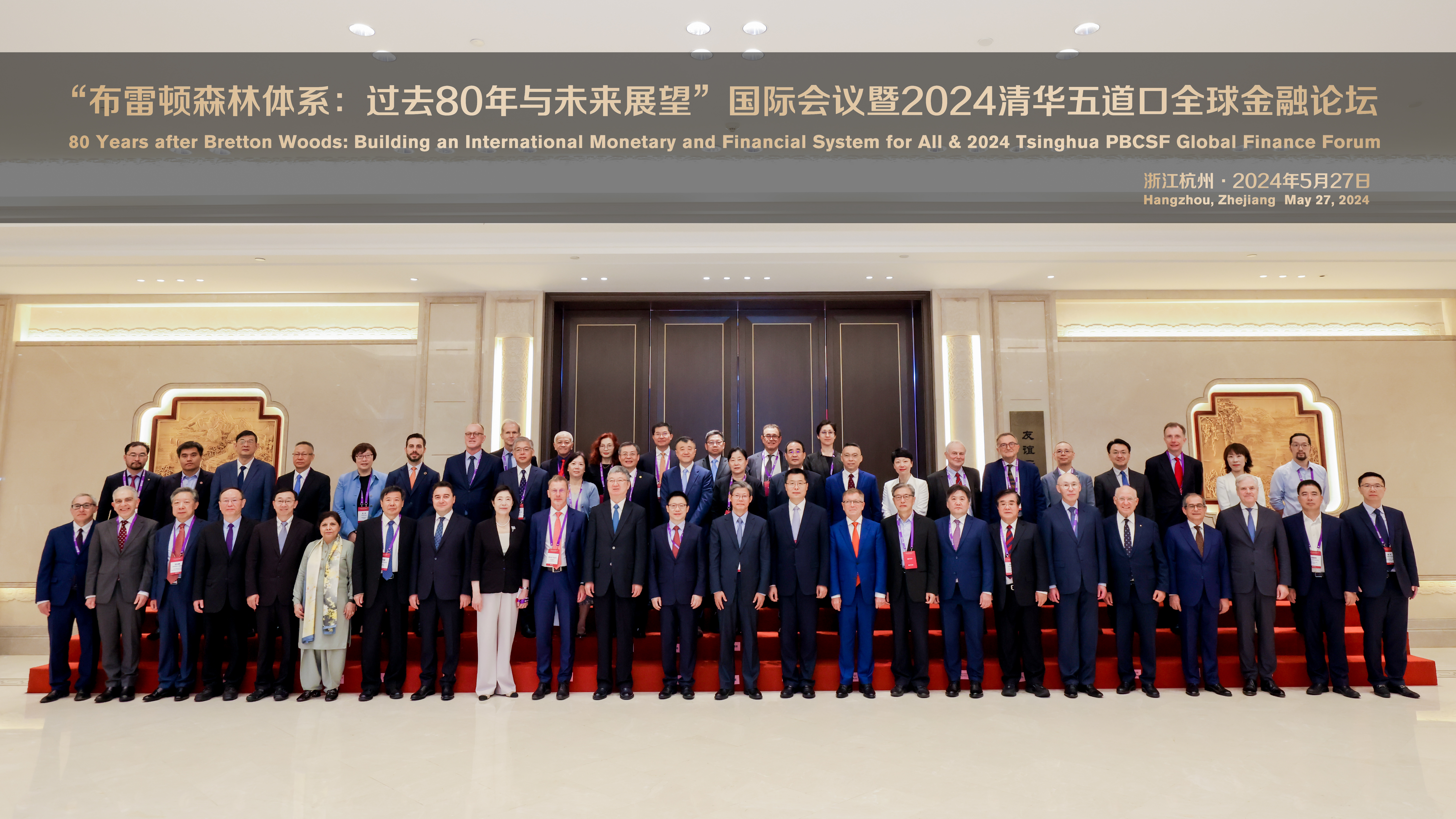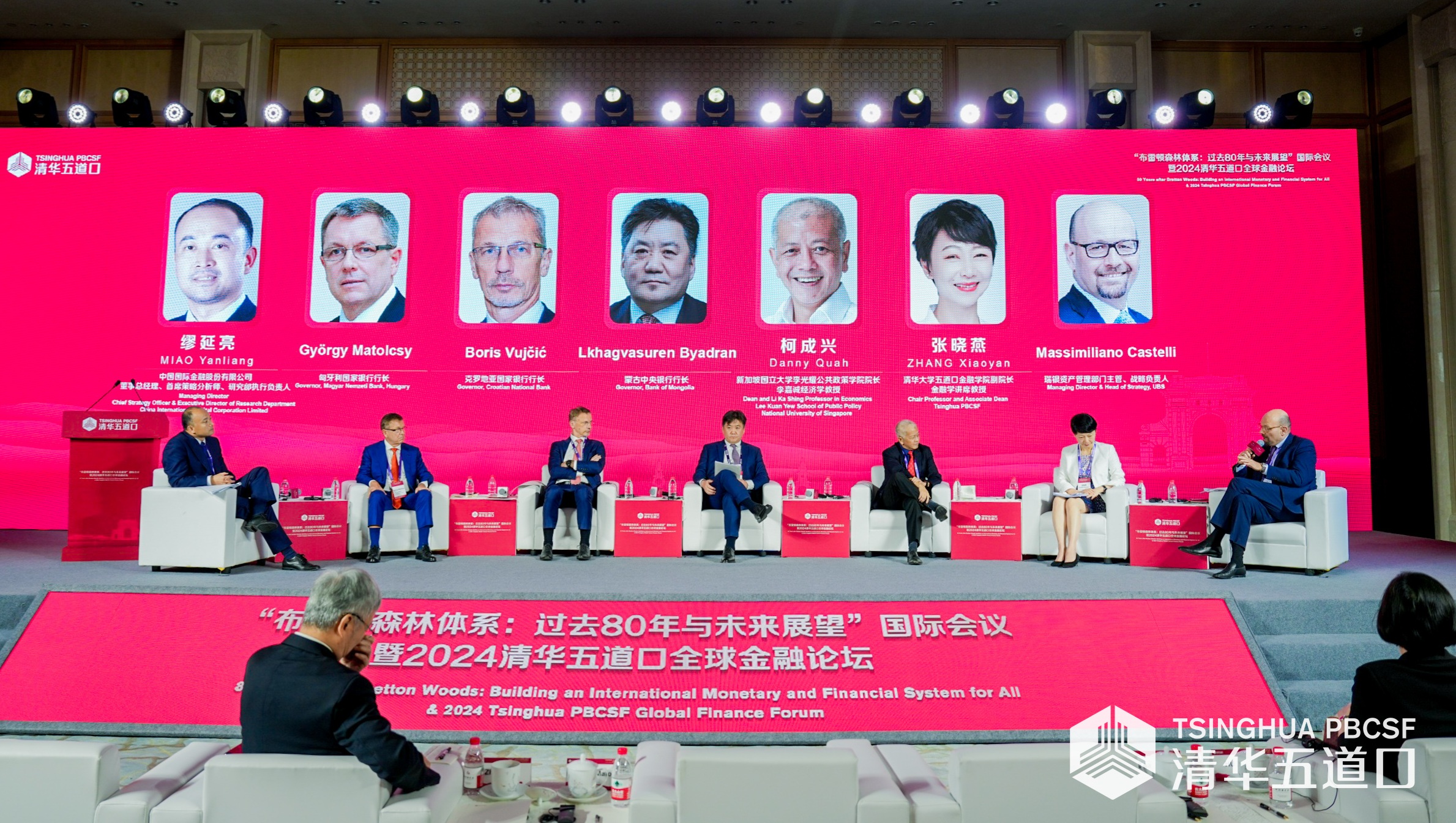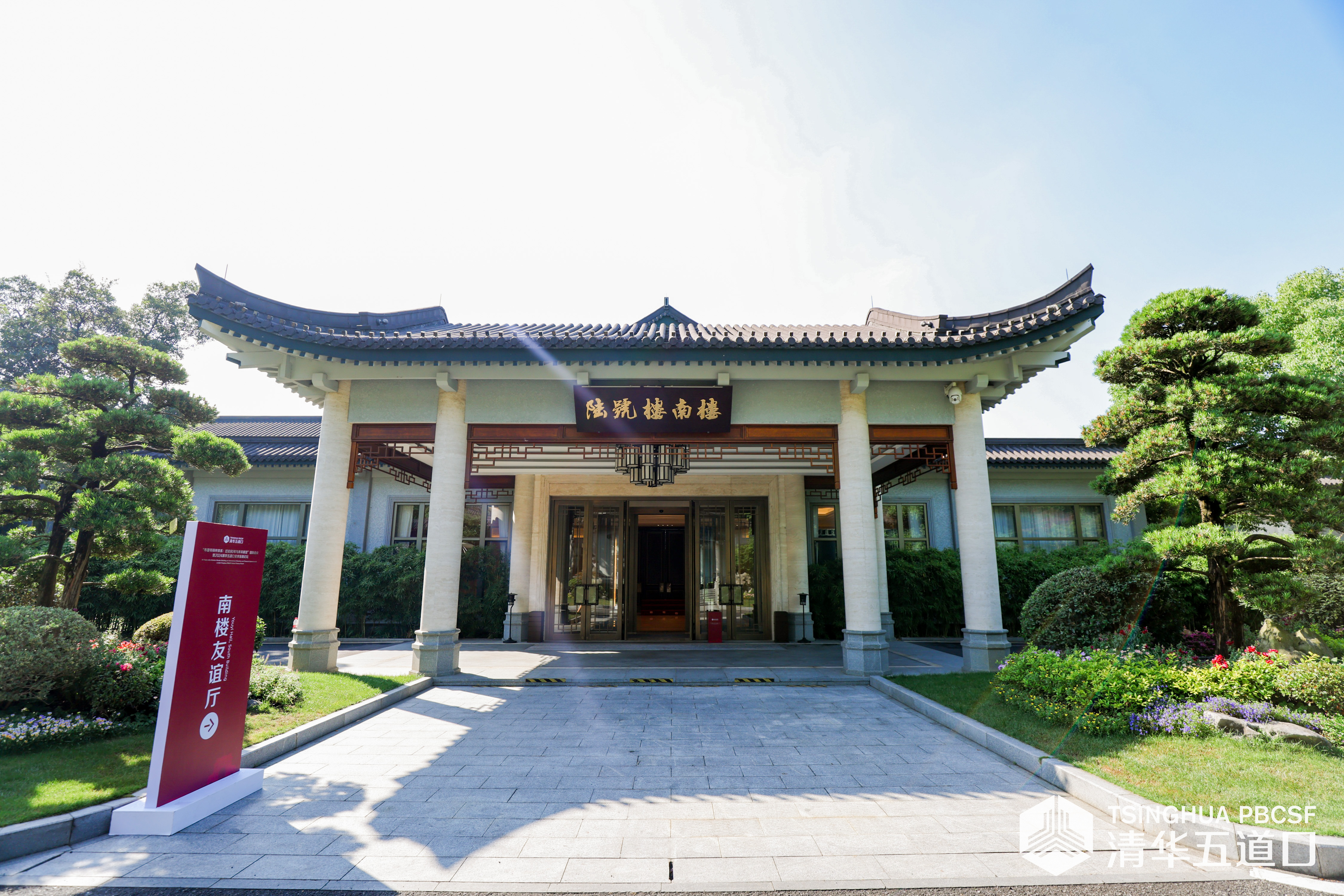Small State Leadership: Bretton Woods at 80
Published:
Small State Leadership: Bretton Woods at 80
by
Danny Quah
Jun 2024
In the international system, small states are typically thought to follow an obvious pathway. Small states must obey the weaker half of Thucydides’s dictum (paraphrased), “Great Powers do what they will; the rest of us suffer what we must.” In other words, small states are price-takers. Small states take as exogenous the restrictions that Great Powers impose on them, and at best optimize subject to those constraints.
Of course, such optimizing strategies can take a variety of forms: small states might seek to escape predation by assuming the features of a poisonous shrimp, or they might attempt to maneuver nimbly within gaps and between obstacles left by large lumbering Great Powers. Small states might bandwagon or hedge, taking as given the standing configuration of Great Powers.
But such reactive strategies assume a version of the hypothesis that while everyone can build bridges, only a few can move mountains. The landscape of global outcomes is determined by Great Powers; it’s only where the furniture goes that small states need be concerned about.
There is, however, a more proactive class of strategies that rejects this hypothesis. Under this alternative view, small-state strategies seek to shift global outcomes through exercising agency and influence. These strategies do not take as exogenously given the positions of Great Powers.
To be clear, a small state seeking agency and acting proactive does not mean it should recklessly stand up against a Great Power on the battlefield. Just as reactive strategies can take multiple forms, so too proactive ones. The objective is to shift global outcomes in one’s favour, not raise the risk of one’s annihilation.
It is a fallacy of composition when one supposes that if a single small state cannot change the outcome, the entirety of small states in the international community must also be similarly ineffective. In economics, that every consumer is a price-taker does not mean the aggregate demand curve is horizontal. In political science, that every voter is rational does not mean the outcome is too.
The global economy—in its financial architecture and its holdover Bretton Woods system, this year eight decades old—has long been regarded the arena where small-stage agency is most required. To take up such a discussion, I make two observations and advance some proposals on what small states can do.
- For 80 years the global economy has been organized around two grand themes: economic efficiency and comparative advantage. That world brought benefits sufficient for all, on net, but was costly to operate. It offered multilateralism but required global public goods in the form of open markets; peaceful dispute resolution; exchange and institutional infrastructure; and most importantly, commitment to the idea of a level playing field, where the right response when you don’t win is you raise your game—educate and upskill your workforce, while smoothing adjustment; improve your national infrastructure; raise productivity through research and development. This lets you grow jobs, industry, and technologies of the future. You don’t lash out or seek to contain the other guy.
- That world of efficiency, multilateralism, and a level playing field is no longer on offer, done in by two inter-related but not identical forces: US-China competition and rising multipolarity. The first is what everyone already talks about. We should not pretend it is a Cold War: China is not offering a political or economic system that seeks to undermine the US’s way of life or destroy its system of government. The US’s complaint about China is that China operates its economy in such a way as to, on open markets, steal American jobs, dismantle US industry, aim to control the technologies of the future—charges that no one in their right mind would ever have accused of the Soviet Union. The second disruptive force is that the world is now more multipolar. This is a good thing—today there is a flatter, more egalitarian world. But a more multipolar world also reduces the incentive for world leadership to provide global public goods, as those benefits are now increasingly shared with others. From these two forces, the global economy has fractured.
- Solutions? I see three possible lines of attack. The first two are epic fails.
a. Beg. Make advanced nations and Great Powers realize that by keeping the economy from fracturing—we live in an inter-connected world—they help themselves. But Great Powers and advanced nations have already done that calculation. They see costs exceeding benefits. They are not minded to change tack. They see the net gain to themselves to deploying a strategy of might makes right. It is not much better asking for Middle Powers to weigh in, simply because being larger and more powerful than small states, they might have a better chance of being persuasive. Asking for Middle Powers to take leadership, simply because they’re bigger than small states, does not restore the principle of multilateralism. It just replaces a deadly convincing version of might makes right with a slightly more anemic shadow.
b. Resignation. Accept Thucidydes’s version of realism and agree that while everyone can build bridges, only a few can move mountains. Bandwagon if you must. Or hedge. Or keep a low profile and try to work your away around the barriers that rival Great Powers have raised. Such strategies show equal lack of proactive agency. In the current time a resignation strategy sacrifices national agency on the altar of Great Power rivalry. The dynamic points to a downwards spiral as the Great Powers grow ever more gridlocked in a zero-sum game or worse, a game whose equilibrium is an epic fail (or Prisoners’ Dilemma).
c. Lead with Third Nations and small states: Delegate leadership to those who have both expertise and incentive to keep the global system together. The supply of global governance is low when we look to the big advanced nations to provide it. The demand is high, on the other hand, for a functioning global economy with multilateralism and a level playing field, especially among small states and those not embroiled in Great Power competition. Many small states are extremely capable, and see extensive benefits to themselves of keeping together a functioning multilateral system. Of the world’s nine richest economies (richest by per capita measure), eight taken together have an average population of only 4 million, i.e., smaller than Singapore’s. They are strongly incentivized to make work a global trading system with level playing field and minimal obstacles. Small states can create platforms for inadvertent cooperation. Through strategic side-payments, small states can nudge Great Powers out of zero-sum gridlock into win-win outcomes. Small states can create effective (if restricted) multilateral groupings that are either plurilateral or minilateral, but that can seamlessly transition to open, inclusive multilateralism when interests again align.
What small states are not good at are activities that draw on increasing returns to scale: engaging in violent interstate conflict. This is a bonus.
Repair the mismatch between demand and supply: Put small states in charge.
References
Armstrong, Shiro and Quah, Danny. 2023. “Economics for the Global Economic Order: The Tragedy of Epic Fail Equilibria”, LKYSPP Working Paper (Oct)
https://dannyquah.github.io/In-progress#economics-global-order
Gaspar, Vitor; Hagan, Sean; and Obstfeld, M. 2018, “Steering the World Toward More Cooperation, Not Less”, IMF Blog (06 Sep) https://www.imf.org/en/Blogs/Articles/2018/09/06/blog-global-cooperation
Quah, Danny. 2024. “Economic Principles for A New World Order of Multipolarity and Multilateralism”, LKYSPP Working Paper (April) https://dannyquah.github.io/In-progress.html#multipolarity-multilateralism
Quah, Danny. 2024. “‘Export-led Growth’: The Trade-Technology Relation in Small and Poor Economies”, LKYSPP Working Paper (May)
https://dannyquah.github.io/In-progress.html#small-poor-trade-technology



